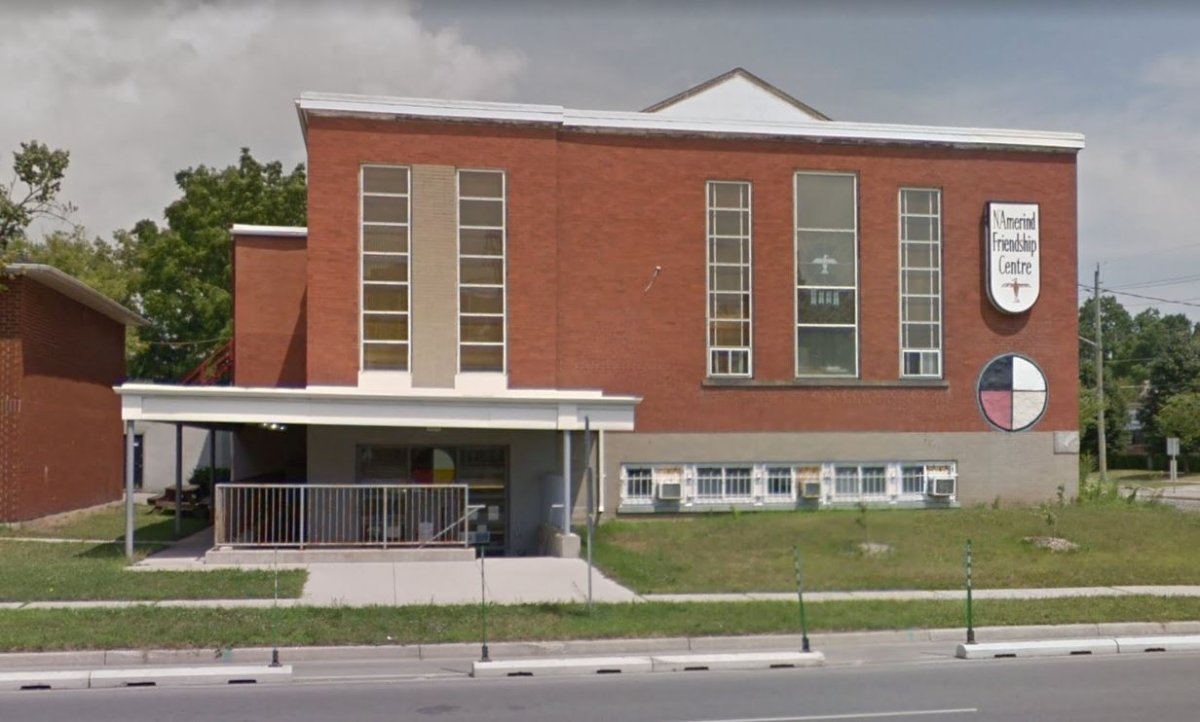N’Amerind Friendship Centre in downtown London, Ont., will be home to a COVID-19 vaccination clinic this Friday and Saturday aimed at vaccinating more Indigenous Peoples in the region.

Organizers say the clinic will focus on supporting those who’ve experienced trauma, including within residential schools and the health-care system, or for anyone “who prefers more familiar grounds” for vaccination.
The clinic is the result of collaboration between N’Amerind, the Southwest Ontario Aboriginal Health Access Centre (SOAHAC), Atlohsa Family Healing Services, and the Middlesex-London Health Unit.
“As we see infections continue to rise in our region, we are in a race against time to vaccinate Indigenous people, whom we know are more likely to be adversely affected by COVID-19,” says N’Amerind board chair Brian Hill.
“We look forward to offering a safe and welcoming vaccination environment in partnership with SOAHAC, Atlohsa and the Health Unit.”

SOAHAC CEO Brian Dokis says they are committed to delivering vaccinations “as quickly, effectively and respectfully as possible, so we can continue to improve the health outcomes for the Indigenous communities we serve.”
Dave Remy, SOAHAC director of client care, says the clinic will be open to Indigenous people as well as their families.
“If you have family members living with Indigenous people, non-Indigenous people who are married or have children with them, they’re welcome to that clinic as well.”
The clinic will be held Friday, April 23 and Saturday, April 24 at 260 Colborne St. from 10 a.m. to 5 p.m.
Interested adults can book an appointment by calling N’Amerind at 519-672-0131.
Indigenous adults have been identified as a priority group for vaccinations.
National Advisory Committee on Immunization (NACI) guidance from February says that “racialized and marginalized populations, such as Indigenous Peoples, have been disproportionately affected by COVID-19 due to a number of intersecting equity factors.”
“NACI recognizes that these populations may face challenges accessing immunization services, and special efforts to reach these populations will be needed throughout all stages of vaccine rollout,” the guidance states.
Additionally, the proportion of Indigenous Peoples in Canada who have at least one underlying health condition associated with a higher risk of severe COVID-19 outcomes is higher than other Canadians in every age category above 20 years, according to NACI.
The risk of severe COVID-19 also appears “higher in First Nations living off reserve compared to those living on reserve,” NACI says.
MLHU medical officer of health Dr. Chris Mackie said Monday that the province has taken notice of local efforts to vaccinate urban Indigenous populations.
“We’re getting a bump (in vaccine shipments) the current week, and that’s in recognition of the work that the health unit has done to vaccinate urban Indigenous populations,” Mackie says.
“We’ve been reporting that work up to the province and the province has recognized the work and is sort of reimbursing with additional vaccine allocation for this week.”
- Bird flu risk to humans an ‘enormous concern,’ WHO says. Here’s what to know
- ‘She gets to be 10’: Ontario child’s heart donated to girl the same age
- Shoppers faces proposed class action over claims company is ‘abusive’ to pharmacists
- Most Canadian youth visit dentists, but lack of insurance a barrier
Mackie says the MLHU will receive about 5,000 extra Pfizer doses this week. However, next week it will see about 25 per cent fewer Pfizer doses than usual as the province reallocates some of its supply to harder-hit areas.
“If vaccine can go somewhere where it’s going to prevent cases, reduce spread there and reduce the spillover effects here, that’s something that helps us all,” he said.
“At the same time, it is somewhat frustrating. We do have much more capacity in this community to vaccinate than the vaccines that are coming here.”
As of April 18, the MLHU says 125,387 doses have been administered in the region.









Comments